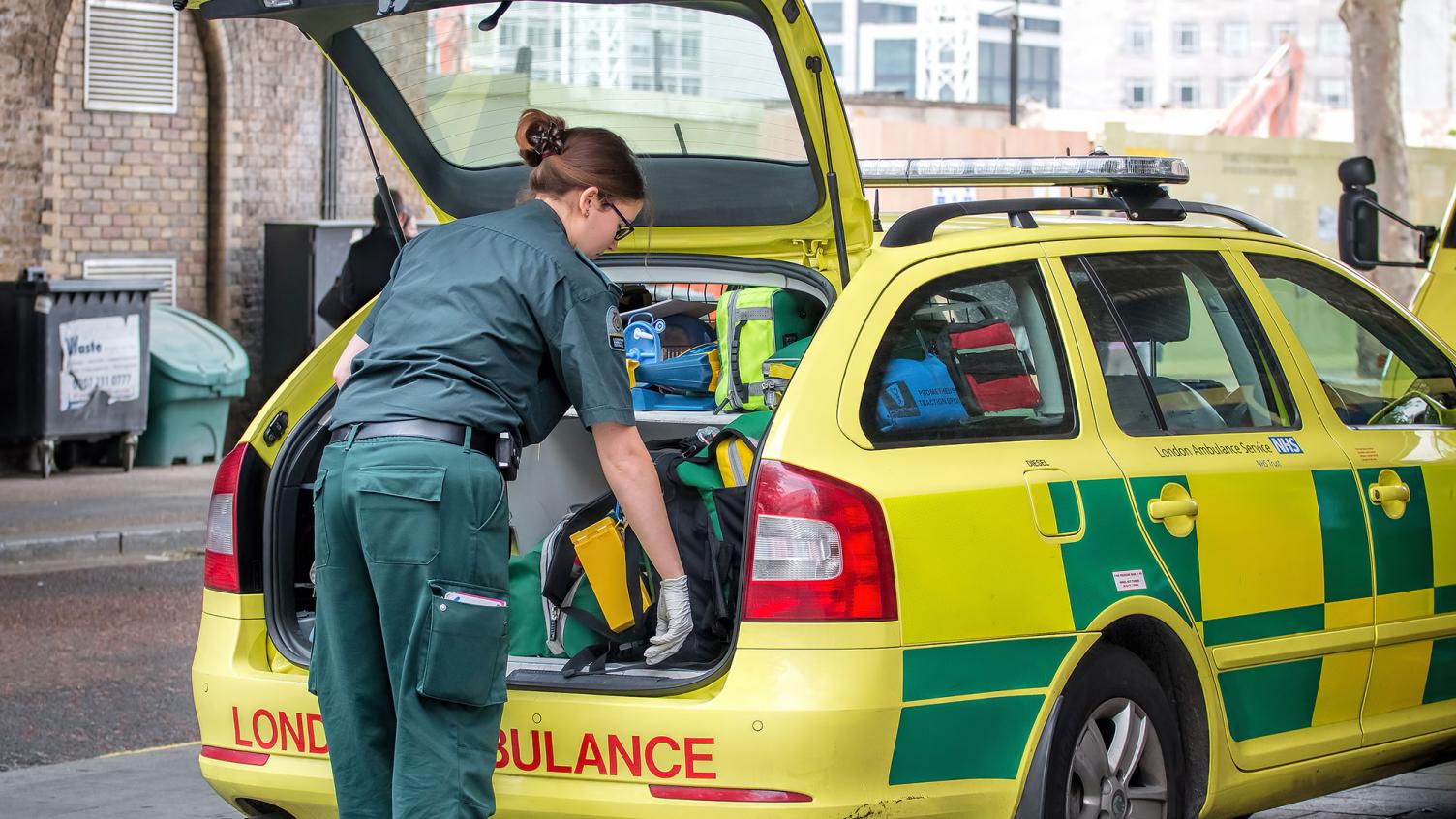NHS Confederation recently published a case study about the Silver Triage initiative, enabling specialist geriatricians to provide advice, via Consultant Connect, to ambulance paramedics who are assessing older people. You can read the case study here.
We have also replicated the content below:
Many older people living with frailty are conveyed to hospital by ambulance but then turn out not to need hospital care. The Silver Triage initiative in North Central London aims to ensure more older people living with frailty receive urgent care in their home setting, if this is safe and in keeping with their wishes and preferences.
Key benefits and outcomes
- Substantial reduction in patients taken to hospital, from 75 per cent in 2018 to 20 per cent today.
- 100 per cent of paramedics would use the system again.
- The scheme has been extended to cover people living in their own homes who now make up a majority of those seen.
What the organisation faced
Like many other areas, North Central London (NCL) saw a disproportionate number of emergency hospital admissions from people living with frailty aged over 75 – especially those with dementia. Many in this group, and their carers, would prefer to avoid being taken to hospital but ambulance crews often felt they had little choice, especially when patients had several pre-existing conditions and they did not have a full oversight of their medical history. Once at emergency departments, patients could face an extended wait for treatment and admission. Admission could lead to hospital-associated disability and be particularly distressing to those with dementia.
Previously, about three-quarters of older people living with frailty who were assessed by London Ambulance Service (LAS) were taken to hospital for their urgent care needs.
What the organisation did
In 2022, the NCL Integrated Care Board (ICB) approved an initiative to set up a scheme called Silver Triage, bringing together LAS and NHS trusts. Silver Triage enables specialist geriatricians to provide advice and guidance to ambulance paramedics who are assessing older people living in care homes. The doctors can also help access and coordinate community services to provide care at home if the person does not need to go into hospital.
The ambulance service accesses the scheme through a single phone number. The paramedics explain the situation, the patient’s background, their initial assessment, and recommended plan. The specialist doctor can then add to this if they feel it would be appropriate and support the ambulance teams with helping make sure the plan is put into action. For example, by liaising with teams of healthcare staff in the community to make sure they are happy to be involved.
Results and benefits
The Silver Triage service has resulted in around 20 per cent of the patients seen being conveyed to hospital – a significant reduction compared to 75 per cent of similar patients in 2018.
The scheme has been supported by paramedics, 100 per cent of whom said they would use it again, and there have been calls to expand it to include other ambulance staff.
Overcoming obstacles
There have been several challenges to setting up the scheme, some of which persist to some extent. The first is a shortage of consultant cover to provide the telephone triage, mainly due to capacity issues. This means it hasn’t been possible yet to extend the hours beyond 9am to 5pm each day.
Governance was one of the major challenges and required considerable time to ensure it was appropriate. It was eventually decided that only paramedics would be able to access the system, not other unregistered ambulance staff. Deciding where the clinical responsibility for the service would sit was also important, and it was agreed this would sit with Central and North West London Foundation Trust as the provider lead for Silver Triage.
Takeaway tips
- Communication between all potential partners from the start is vital to get buy-in and agreement to commit resources such as clinician time.
- The service may need to be tailor-made to different locations to reflect what local services are available and what gaps there are.
- Paramedics and consultants need to understand each other’s role, skills, and knowledge to build trust.
- The system must be easy to use: NCL used Consultant Connect to ensure that calls were answered promptly.
If you have any questions or want to find out more, call us on 01865 261 467 or email hello@consultantconnect.org.uk.
Related materials

